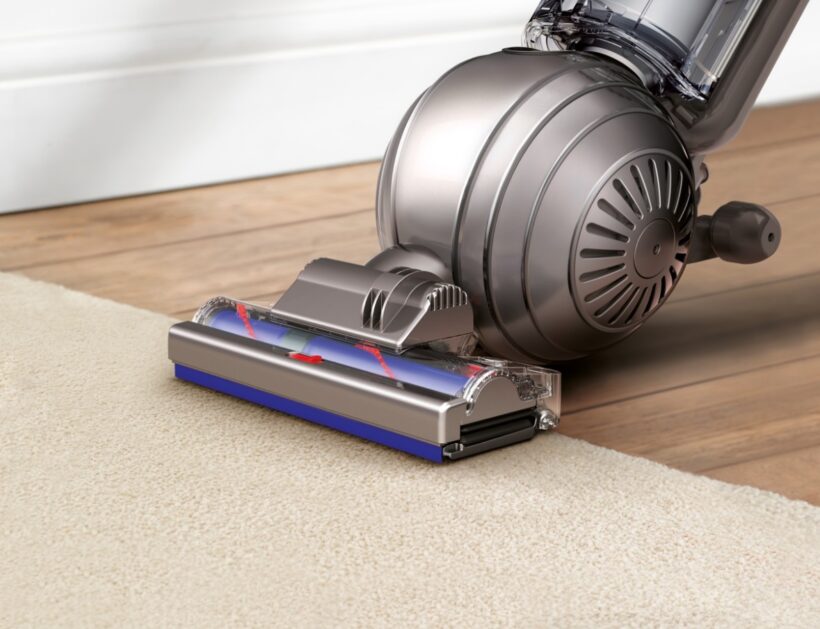8 things you need to know before buying a Dyson HEPA filter
When someone talks about “Dyson”, what products cross your mind? Dyson Limited company provides household appliances, such as vacuum cleaners, hand dryers, desk fans, or even hair dryers. Of course, the vacuum cleaner is one of their most popular products since it pretty much represents the innovation and success of James Dyson, its inventor. However, what makes the Dyson vacuum cleaner so special? What’s a HEPA filter? How does it work? Let’s find out in our complete guide down below.
1. Get to know Dyson vacuum cleaners.
James Dyson was trying to develop his cleaning devices for at least 5 years and failed over 5000 times. Eventually, he came up with the world’s first bagless vacuum cleaner; the Dyson vacuum cleaner known as G-force was first sold in Japan. Thanks to its effective performance, it became a best-selling product and won the 1991 International Fair Prize in Japan.
Most vacuum cleaners of Dyson contain the HEPA filter which effectively captures the particles. For this reason, they have been one of the most recommended products for homeowners around the world.
2. What does HEPA mean?
Everybody is used to the term “HEPA filter”, but can you guess what it means? HEPA comes from the initials of these words, High-Efficiency Particulate Air, which is pretty self-explanatory… and efficient, no pun intended!
3. What can a HEPA filter do?
A HEPA filter can help you keep your house clean with a healthy environment. It will catch the small impurities without too much work. As the U.S. Department of Energy defined, it removes at least 99.97% of particles that are 0.3 microns (smaller than PM 2.5). In other words, this filter is even better than a normal air filter since it can trap tiny particles not only in the air but also on different types of floors and furniture.
4. What is a HEPA filter made of?
It is a high-quality filter made of fiberglass or polypropylene. It is a mat of randomly aligned fibers that are woven firmly between each other. As a result of its advanced technology, the filter ensures that fine dust, pollen, smoke, or even bacterias will be effectively captured. These fibers are rolled into a thick deeply-pleated and paper-like tubing layer where the air goes through. From there, the particles are caught and stay stuck inside.
5. Is a HEPA filter really important?
The microparticles (at least 0.3 microns) not only cause various allergies but also cause asthma. Indeed, if someone in your family is allergic to dust, you should have a HEPA filter. As you may know, a HEPA filter can trap microparticles; thereby, using a Dyson HEPA filter will protect you and your loved ones from sickness.
6. How does a HEPA filter work with Dyson vacuum cleaners?
A HEPA filter in a Dyson vacuum cleaner will catch the particles by impact, interception, or diffusion. When the airspeed is low, the vacuum cleaner diffuses the air, leading tiny particles (smaller than 2.5 microns), into the fibers of the HEPA filter.
At medium speed, when the small dust is moving along the airflow, it could be going through the first layer of the filtering fibers. Nevertheless, the tiny impurities will eventually be trapped due to the fiber pattern density. This is what we call the interception.
Lastly, at high speed, the fibers in the Dyson vacuum cleaner will capture the particles immediately since the particles attach themselves directly to the HEPA filter.
7.How long does the HEPA filter work for your Dyson vacuum cleaner?
Normally, you should check your HEPA filter every six months, or only once a year if you don’t use it much. However, it is recommended you regularly change your filter for the best performance, especially if you use it every day. You should know that this filter cannot be washed with water or other detergents since the fibers will be ruined. Dry cleaning is best for HEPA filters, and reading the user manual if you are not sure about something is always helpful.
8. Is a HEPA filter in your vacuum worth your money?
Many people may have doubts, but HEPA filters are high-quality products and a good investment for a healthy home. Although some houses already have HEPA filters in their air purifier, the latter cannot catch all the particles in the carpets and whatnot. Therefore, a HEPA filter for your vacuum cleaner is definitely worth your money.
In conclusion, these filters are a great investment. That said, you must be wondering how much does a HEPA filter cost? Generally speaking, it should cost $75 – $150 for a true HEPA filter. Indeed, be careful to not buy a fake one. Some shady brands may claim that their filters are HEPA, but in fact, they are absolutely not.

No Comments